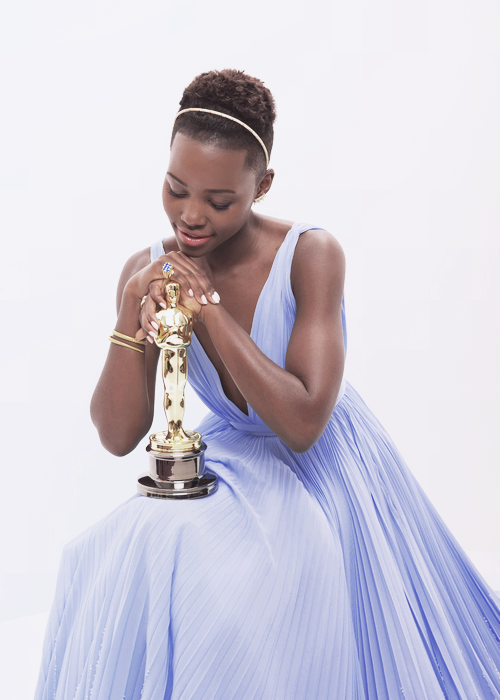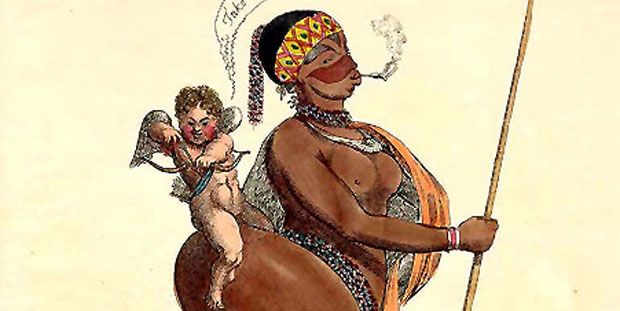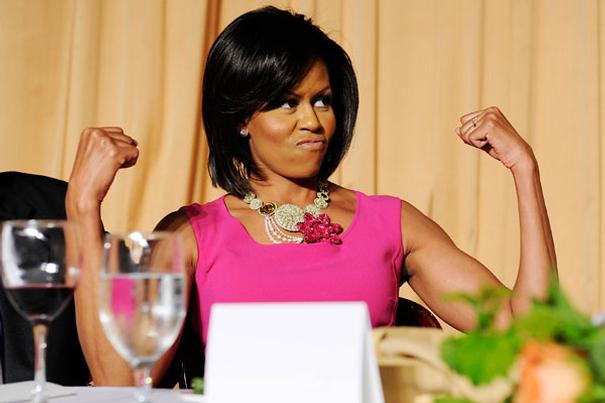Hello Readers!
I'd like to share with you some of my favorite books that I own.
They cover broad genres such as historical or sociological scholarship, romantic fiction, classic literature, Black feminist theory, non-fiction and they're American and non-American. But what they all have in common is that they are by and about Black women.
Leave a comment below if you've read any of these and enjoyed them! Or leave your own book recommendations!
- Danielle
Showing posts with label black women. Show all posts
Showing posts with label black women. Show all posts
Friday, July 25, 2014
Thursday, July 24, 2014
Why This Black Feminist Will Always Be Concerned About Black Male Issues
(March for Eric Garner in NYC)
Many Black women are deeply hurt by anti-Black misogyny. Although anti-Black misogyny comes from everywhere it seems to be a particular betrayal when it comes from Black men.
Thursday, July 3, 2014
The Failure of the Natural Hair Movement
Honestly, I've never considered myself to be a part of the natural hair community. Yet, I've been sans chemicals all my life except once when I made a poor decision in ninth grade and got a perm. Never made that decision again because I lost a lot of my length.
Tuesday, June 24, 2014
Black Women & Patriarchal Relationship Advice
A lot of the relationship advice directed towards Black women is quite frankly scary.
Unfortunately, I'm not just referencing "relationship help gurus" such as Steve Harvey and Tyrese. I'm also talking about the advice you'll get from your mom's best friend, your auntie, your older cousin, and the well-meaning ladies in the church.
I find the advice given to Black women particularly discouraging in light of the fact that Black women deal with some of the highest rates of intimate partner violence and sexual assault. So you'd think we'd have created and sustained enlightening advice that supports our self-determination and physical and emotional health. But instead the intent of most given advice is towards pleasing and subordinating ourselves to (Black) men.
Unfortunately, I'm not just referencing "relationship help gurus" such as Steve Harvey and Tyrese. I'm also talking about the advice you'll get from your mom's best friend, your auntie, your older cousin, and the well-meaning ladies in the church.
I find the advice given to Black women particularly discouraging in light of the fact that Black women deal with some of the highest rates of intimate partner violence and sexual assault. So you'd think we'd have created and sustained enlightening advice that supports our self-determination and physical and emotional health. But instead the intent of most given advice is towards pleasing and subordinating ourselves to (Black) men.
Saturday, April 12, 2014
The Happy Performance Deconstructed: A Personal Reflection
I think the best thing I can do for myself is to be emotionally honest. I need to always be sure to verbalize my feelings. All of my feelings whether they are of happiness, anger, or pain.
Thursday, April 3, 2014
But Black Women Have Always Been "My Brother's Keepers" so Who is "Keeping" the Sistas?

When I'm asked about how Black male sexism makes me feel I am forced to think carefully about an issue that I find both demoralizing and complex.
I was raised in a very pro-Black household. In this sense I was raised to love Blackness, which in practice always means loving (cis hetero) Black men although it doesn't always mean loving Black women. I was taught to love and respect Black women on condition. Is she educated? Is she childless or married? Is she demure? Is she with a Black man?
So I was socialized to love and appreciate and act in consideration towards Black men quite frankly at the expense of myself. Whereas the fact is that Black men are absolutely not socialized to be the same way towards Black women.
Friday, March 28, 2014
Black Girl Bravado (Because There is No Patriarchalized Femininity For Us)
 Last night I attended a lecture on the "Impostor Syndrome" for Women's History Month. The "Impostor Syndrome" is basically the idea that successful women (to a greater extent than successful men) often feel academically and/ or professionally inadequate and live in fear that others will discover their incompetence and strip them of the awards and accolades they have received.
Last night I attended a lecture on the "Impostor Syndrome" for Women's History Month. The "Impostor Syndrome" is basically the idea that successful women (to a greater extent than successful men) often feel academically and/ or professionally inadequate and live in fear that others will discover their incompetence and strip them of the awards and accolades they have received.I sat listening to this lecture. Half listening, half feeling annoyed and trying to figure out why. It could have been the casual way that the presenter pretended to be intersectional by dropping the word "people of color" and saying, "This happens a lot to men of color too! In fact, I spoke to a group of Black male engineers once!"
I looked around the room. There were only two other Black women and no Black men. I was surrounded by white women who vigorously agreed with everything the speaker said.
Monday, March 24, 2014
I'm Not An Angry Black Woman But Should I Be?
Many people are concerned about anger within social justice circles. They want to limit and contain anger. Angry people are shamed as destroying the credibility of the movement. They are often told that if they were "nicer" they would be listened to.
However, I am concerned that I'm not angry enough.
Monday, March 17, 2014
Black Feminism 101: It Was More Than a Fight to Be Included in White Feminism
Occasionally, I lead introductory workshops to Black feminism. And I've found that I'm always called upon to comment on how Black women fought to be included within the white feminist movement.
This is the common way that people understand the Black feminist movement if they purport to understand it at all. They understand it as Black women fighting to be included in a white woman's movement.
This is the common way that people understand the Black feminist movement if they purport to understand it at all. They understand it as Black women fighting to be included in a white woman's movement.
Sunday, March 16, 2014
Black Women and Stress: It is a Condition, Not Who We Are
I've realized that one of my greatest obstacles to happiness and self-actualization are my ties to stress. I have used stress to define myself and to understand my life existence. I am not who I am unless I am inordinately busy, unless I am struggling to fit in all of my responsibilities, unless I have minimal time for myself.
I am wedded to struggle more than I am attached to doing what will benefit my own happiness and that has taken a real toll on my emotional health.
Unfortunately, mental health is not really a priority anywhere. However, it has the tendency to be especially viewed as facetious or a joke for many Black folks.
However, the greater truth is that the same people who are not very concerned with mental health are also not very concerned with physical health either since both are inextricably connected. If I am not emotionally healthy, that will always impact my physical health.
Being tied to struggle is mutually exclusive with emotional health.
Thursday, March 6, 2014
Thoughts on Black Women Leadership with a Self-Focus
A few weeks ago I wrote a piece entitled "The Paradox of Assertiveness for Black Women" and in it I discussed how the widely disseminated myth that Black women are assertive (as juxtaposed to white women) actually harms Black women. The fact is that we do not often have the choices and the leeway to truly be assertive on our own behalf.
I also talked about how many Black women have accepted the notion that we are innately assertive and independent because it makes us comfortable to believe we have more power than we in fact do.
I actually want to extend this argument further to suggest that Black women need to actively learn how to be assertive in a way that is self-focused. Not selfishness, but leadership that centers the needs of the individual Black woman leader and the needs of other Black women. The "feminist" message that Black women do not need to learn how to be assertive and leaders because we are naturally that way serves to keep us in a subservient position where the complete opposite is true.
Wednesday, March 5, 2014
The Lupita Nyong'o Experience: Thoughts on Learning How to Love Black Womanhood
I am enjoying the post-Oscar glow that so many Black girls and women have right now after watching Lupita Nyong'o receive her well-deserved award for Best Supporting Actress! She looked beautiful. She gave a moving and emotionally impacting speech. She was radiant. I couldn't have asked for anything more!
Nothing can take the shine away. Not the racists who are "hiding" under a very, very thin veneer of stanning for Jennifer Lawrence. Not the so-called pro-Black people who chide Lupita enthusiasts for supporting the racist Oscars (and they're right about The Oscars being racist, but I'm still happy for Lupita and for myself! Representation matters!)
But what does bother me is the respectability politics. There is something so infuriatingly poisonous about how some Black folks have chosen to speak about Lupita Nyong'o. I knew it was only a matter of time until Lupita Nyong'o would be pitted against other Black women as an angel while everyone else is a demon.
Here we go again!
Saturday, March 1, 2014
I Love Lupita: Black Women & Beauty
I love Lupita Nyong'o. She is incredibly important to me. Not only is she an incredibly gifted actress, but her very presence has been actively re-envisioning notions of Black beauty.
Tuesday, February 25, 2014
Stopping Jezebel: Some Thoughts on the Complexities of Black Women Owning their Sexuality
I was thirteen and a freshman in high school when I got my first boyfriend. I didn't know anything about dating or relationships. It wasn't "serious" although I thought it was at the time. He would walk me to class. I'd watch him perform. We'd sit in the hallway giggling and holding hands. I even shared my first kiss with him.
Then we broke up. And one of the ways he used to get back at me was calling me a ho and a slut.
Later, I distinctly remember being taken aside by an older Black woman. She explained to me that I was called a slut because that's what men do when they're angry. And I could have avoided it if I had never been alone with him in the first place because once you do anything with a man he will expect you to have sex with him and if you don't he will begrudge you for it.
That's because boys will be boys. And it's because you are a (Black) girl.
That was my introduction to the politics surrounding the Jezebel image.
Then we broke up. And one of the ways he used to get back at me was calling me a ho and a slut.
Later, I distinctly remember being taken aside by an older Black woman. She explained to me that I was called a slut because that's what men do when they're angry. And I could have avoided it if I had never been alone with him in the first place because once you do anything with a man he will expect you to have sex with him and if you don't he will begrudge you for it.
That's because boys will be boys. And it's because you are a (Black) girl.
That was my introduction to the politics surrounding the Jezebel image.
Black Tokenism & The PWI Experience
Most Black folks have experienced being the token at some point in their life. Especially if they are accustomed to inhabiting majority white spaces.
Predominantly White Institutions (PWI's) in particular are notorious for forcing the token identity on unsuspecting Black college students.
Being the token can be intimidating if you're shy and like to keep to yourself. It's a way of highlighting you for no other reason other than the fact that you're the only Black person in the vicinity. So now it is you who must speak on behalf of your race. It is you who must know everything about Black issues and hold all of the answers. Your classmates and even your professors will be looking to you.
This is a very common phenomenon that Black people, to a certain extent, have come to expect. But the emotional and psychological costs of tokenism are not often considered.
As I prepare to finish college, I am now more aware of all of the ways tokenism has been a detriment.
Monday, February 24, 2014
Not Your Strong Black Woman Anymore
Strong Black Woman enthusiasts aren't always obvious. Sometimes it is covert. But they reveal themselves by never believing that you are tired or sad or might need assistance. Or believing that you have everything under control at all times. They are the people who say there are "no excuses" and that includes being physically ill, depressed, overwhelmed, or just not in the mood to be busy.
It is a given that Black women will be treated like this by people who are not Black women. But oftentimes we treat each other in this manner as well. To me this has been the most hurtful because you can easily expect to be treated like a mule or an impervious superwoman by outsiders, but it is easy to expect compassion from one's own.
Friday, February 21, 2014
Black Feminist! Are you Black first? Or are you a Woman first?
Are you Black first? Or are you a woman first?
I get this question all the time because I am a Black feminist. People want to know if this means that I care less about the political realities of being Black. If I am now only concerned with being a woman. Or do I allow my blackness to get in the way of caring about issues impacting women.
Monday, February 10, 2014
The Paradox of Assertiveness for Black Women
Last summer, I attended a college women's leadership conference. Everyone was high on Sheryl Sandberg's book Lean In and I listened to a keynote speaker who talked about how women are socialized to be meek and quiet in comparison to men.
And then after her speech was over she for some reason felt compelled to mention that Black women are the exception because our culture encourages us to be assertive and in charge.
The "assertive" and "angry" in control and independent Black woman is a myth. It was disappointing to hear a well-known (white) feminist act as if this stereotype is factual and uphold it in front of hundreds of people.
Black women deal with the paradox of assertiveness. In order to be respected as a human being we all need to assert ourselves. We need to let others know how we want to be treated and given the space to control the direction of our own lives. Because assertiveness is a derisive label plastered on Black womanhood it necessitates that Black women give up these basic human necessities in an attempt to avoid further mockery.
Wednesday, February 5, 2014
Black Feminism and Everyday Living
"Academic women and men engaged in the production of feminist theory must be responsible for setting up ways to disseminate feminist thought that not only transcend the boundaries of the university setting, but that of the printed page as well. It is also our responsibility to promote and encourage the development of feminist theory by folks who are not academics."
- bell hooks Talking Back: Thinking Feminist, Thinking Black
I have self-identified as a Black feminist since I was eighteen years old. It was the summer after my first year of college. My racial consciousness skyrocketed my first year of college because of numerous racial incidences. And those experiences made me open to and receptive of wider notions of social justice and anti-oppression work: something that I'm still broadening to this day.
But I will always remember reading my first bell hooks book as a monumental turning point in how I viewed myself and the world. She was the first person who gave me the words to articulate the knowledge I implicitly had: that women are treated differently than men. She taught me that Black women are treated differently than Black men. She explained my every day experiences through a sociological and historical lens. I was blown away and I knew I had to learn more.
Friday, January 31, 2014
Black Women & The Continuing Problem of Respectability
The myth of hyper-sexuality is a stereotype Black women have been forced to bear for centuries. It originates from slavery and is still thoroughly woven into our cultural imagination. It controls how Black women's bodies are viewed. It minimizes our sense of personal choice. It takes sexual subjectivity away from Black women.
Scholar Evelyn Brooks Higginbotham coined the term "politics of respectability" in her landmark text Righteous Discontent. In this text, she outlines how nineteenth century Black Baptist women countered the notion of hyper-sexuality by supporting a strict form of sexuality: a more perfected and stringent version of the rules of sexuality in which white women were expected to follow in their hetero-patriarchal society. They believed that this would allow them to escape some of the vitriol of being labeled immoral and impure.
Of course, respectability politics makes a fallacious assumption in believing that Black people are maligned because of an inability to strictly conform to white middle class norms. Most white people do not even conform to white middle class norms. Black folks are degraded because of race. Every other reason is simply an excuse or a way of masking the true nature of anti-Blackness.
Subscribe to:
Comments (Atom)





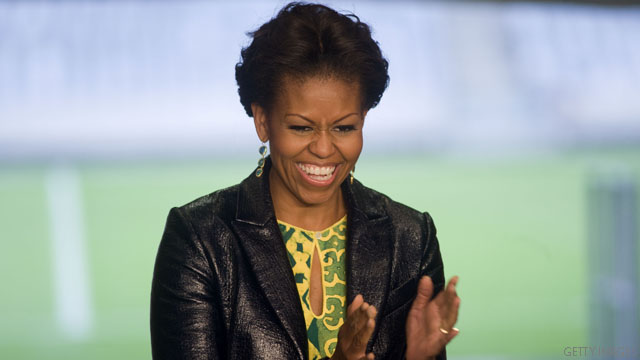
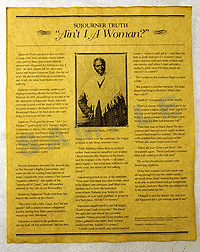
.jpg)

